| Country | Grants | Loans |
|---|---|---|
Austria 2013/14 - grants and loans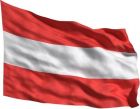 |
The federal student grants can systematically be divided into two sections: direct study financing received in cash,
and indirect study financing which the student may receive by a transfer payment to the students’ parents, or
through non-cash benefits.
Direct student support is paid out in monthly instalments up to EUR 8 952 per year. The amount is assessed on the basis of income and number of family members of the student, his/her parents and his/her spouse. The grants need not be paid back except when proof of academic achievement is missing after the first two semesters. | No student loans. |
Austria 2015/16 - grants and loans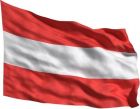 | The federal student grants can systematically be divided into two sections: direct study financing received in cash, and indirect study financing which the student may receive by a transfer payment to the students’ parents, or through non-cash benefits. Direct student support is paid out in monthly instalments up to EUR 9 492 per year on the basis of social criteria and of a good academic performance. The amount is assessed on the basis of income and family conditions. Students may only be required to pay back grants when proof of academic achievement is missing after the first two semesters. | No student loans. |
Austria 2016/17 - grants and loans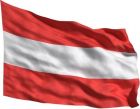 | The federal student grants for 1st and 2nd cycle can systematically be divided into two sections: direct study
financing received in cash, and indirect study financing. Indirect financing may be a transfer payment to the
students’ parents (e.g. family allowances and tax relief), or non-cash benefits (e.g. health and accident insurance
for students and tax benefits).
Direct student support is paid out in monthly instalments of up to EUR 9 492 per year on the basis of social criteria and of good academic performance. The amount is assessed on the basis of the income of the parents, the student and his/her spouse, and the number of family members. Students may only be required to pay back grants when proof of academic achievement is missing after the first two semesters. | No student loans. |
Belgium - flemish 2013/14 - grants and loans | Student grants are allocated on the basis of economic need and academic merit. Eligibility is determined by the income of parents and/or the student and academic achievement in the past academic year. Amounts typically range from EUR 247.84 to EUR 3 835.53. However, a student is entitled to an extraordinary grant of up to EUR 5 164.02 on the basis of extremely low income and a lack of support from family members. | No loans. |
Belgium - flemish 2015/16 - grants and loans | Student grants are allocated on the basis of economic need. Eligibility is determined by the income of parents and/or the student. Amounts typically range from EUR 256.33 to EUR 3 966.88. However, a student is entitled to an extraordinary grant of up to EUR 5 340.86 on the basis of extremely low income and a lack of support from family members. | No loans. |
Belgium - flemish 2016/17 - grants and loans | Student grants for first and second cycle programmes are allocated on the basis of economic need. Eligibility is determined by the income of parents and/or the student. Annual amounts typically range from EUR 256 to EUR 3 966. In 2014/15, the average grant amount was EUR 1 721.07. A student is also entitled to an extraordinary grant of up to EUR 5 340 on the basis of extremely low income and a lack of family support. There are no student grants for short-cycle tertiary programmes, except for the associate degree programme for nursing, with typical amounts ranging from EUR 693 to EUR 3 126 | No loans. |
Belgium - french 2013/14 - grants and loans | Public grants in academic year 2012/13 are available for low income students under 35. Students must apply for this financial benefit each year. The amount granted is determined by household income and ranges from EUR 393.67 to 4673.17 per year. | Loans are available for families with at least three dependent children. Very few (0.01 %) take out a loan (2011/12). |
Belgium - french 2015/16 - grants and loans | Public grants in academic year 2015/16 are available for low income students. However, students over 35 years of age registered in the first year of higher education do not receive any public grant. Students must apply for this financial benefit each year. The amount granted ranges from EUR 394 to 4 821 per year depending on household income. | Loans are available for families with at least three dependent children. Very few (less than 0.01 %) take out a loan (2014/15). |
Belgium - french 2016/17 - grants and loans | Public grants in academic year 2016/17 are available for low income students. However, eligibility is restricted to students under 35 years of age upon initial registration. Students must apply for this financial benefit each year. The amount granted in 2015/16 ranged from EUR 394 to 4 821 per year depending on household income. | Loans are available via students' parents if they have at least three dependent children. Very few (less than 0.01 %) took out a loan (2014/15). The maximum interest rate is 4 %. Repayment must start six months after graduation. |
Belgium - german 2013/14 - grants and loans | Student grants are need-based. Parental income determines eligibility. They are provided through the national social security system for students who return to higher education. Annual grant amounts are between EUR 362 and 2 469. | The possibility exists to take out loans of EUR 1 000 for the first cycle and EUR 1 500 for the second cycle. Interest is between 0 and 3 %, depending on the income of the student, and the loan needs to be repaid at the latest three years after graduation. The Management Committee of student loans can decide about an additional loan of EUR 1 000 on a case-by-case basis. |
Belgium - german 2015/16 - grants and loans | Student grants are need-based. Parental income determines eligibility. Annual grant amounts are between EUR 362 and 2 469 and are paid by the Ministry of the German-speaking Community. | The possibility exists to take out loans of EUR 1 000 for the first cycle and EUR 1 500 for the second cycle. Interest is between 0 and 3 %, depending on the income of the student, and the loan needs to be repaid at the latest three years after graduation. The loans are managed by the Province of Liège, and the Management Committee responsible for student loans can decide about an additional loan of EUR 1 500 on a case-by-case basis. However, no students actually took out a loan in 2013/14. |
Belgium - german 2016/17 - grants and loans | Student grants are need-based. Parental income determines eligibility, and students must be 35 years old or younger to be eligible. Annual grant amounts are between EUR 362 and 2 469, and are paid by the Ministry of the German-speaking Community. | Province guaranteed loans of EUR 1 000 are available for a full first cycle programme and EUR 1 500 for the second cycle. The loan can be used to cover studies in higher education institutions in the Province of Liège and for short-term credit mobility abroad (including the Flemish Community and other parts of the French Community of Belgium). Interest rates are 0-3 %, depending on the student's income. The loan needs to be repaid three years after graduation. The loans are managed by the Province of Liège. An additional loan of EUR 1 500 can be awarded on a case-by-case basis. No students took out a loan in 2015/16. |
Bosnia and Herzegovina 2016/17 - grants and loans | There are no need-based grants.
Responsible ministries of education at entity and cantonal level award merit-based public grants to full-time students with Bosnian and Herzegovina citizenship in public universities. The eligibility criteria include both need- and merit-based elements, such as the minimum grade obtained should be 8/10, performance (1st-3rd place) in national or international competitions, parents' income and employment status. The monthly grant ranges from BAM 100 to BAM 800 and is available for 12 months each year until graduation. Further grants for students are provided by local government. Part-time students are not eligible to apply for state-funded grants. | There are no loans, tax benefits for parents or family allowances. |
Bulgaria 2013/14 - grants and loans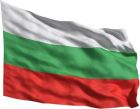 | Grants/scholarships are available to full-time students. They are distributed by higher education institutions, taking into account need-based and merit-based criteria. Grant amounts range from BGN 50 to 120/month. | Full-time students who are less than 35 years old can apply for state guaranteed loans. |
Bulgaria 2015/16 - grants and loans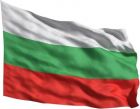 | Grants/scholarships are available to full-time students. They are distributed by higher education institutions, taking into account need-based and merit-based criteria. Grant amounts range from BGN 50 to 120/month. | Full-time students who are less than 35 years old can apply for state guaranteed loans. |
Bulgaria 2016/17 - grants and loans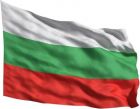 | Grants/scholarships are available to full-time students in all study cycles. They are distributed by higher education institutions based on their specific eligibility criteria. One type of grant must contain two indicators: academic performance and monthly income per family member of the student for the previous six months. From 2016, universities must also award merit-based grants – based only on academic performance. Grant amounts range from BGN 50 to 120/month, and in most cases are issued during 10 months. Starting from the second semester of the 2016/17 academic year, grant amounts shall range from BGN 70 to 150 per month. There is no support for part-time students. | Full-time first and second cycle students who are EU/EEA/Swiss citizens, less than 35 years old and have not interrupted their studies can apply for state guaranteed loans. The study loan may be equal to the tuition fee. The amount of loan to cover living costs is linked to the minimum wage. The interest rate cannot exceed 7 % at banks that have signed an agreement with the government. Repayment is due one year after graduation and must be completed in 10 years. No information is available on the percentage of students taking out the loan. |
Croatia 2013/14 - grants and loans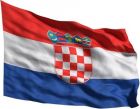 |
At national level, student grants are provided by two public sources: Ministry of Science, Education and Sports as well as National Foundation for support of pupils' and students' standard. Both institutions award grants according to a range of criteria which include both need- and merit-based elements. The grants range from HRK 500 to 1 000 per month and are available for 12 months each year till the graduation (i.e. total of 6 000-12 000 per year).
Further grants for students are provided by a number of regional and local governments. Part-time students are not eligible to apply for state-funded grants. | There are no loans. |
Croatia 2015/16 - grants and loans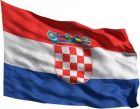 | At national level, student grants are provided to full time students by two public sources: Ministry of Science, Education and Sports as well as the National Foundation for the Support of Student Living Standard. Both institutions award grants according to a range of criteria which include both need- and merit-based elements. The grants range from HRK 500 to 1 000 per month and are available for 12 months each year until the graduation (i.e. total of 6 000-12 000 per year). Further grants for students are provided by a number of regional and local governments. Part-time students are not eligible to apply for state-funded grants. | There are no loans. |
Croatia 2016/17 - grants and loans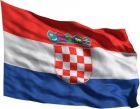 | Student grants are available to full-time students of first, second and short-cycle study programmes. Part-time
students are not eligible to apply for state-funded grants.
Student grants are provided by the Ministry of Science, Education and Sports. Grants are awarded according to need-based criteria such as students' household income per household member or type and level of student’s disability. The total annual amount of the grant is HRK 10 800 (HRK 1 200 per month during nine months). In the academic year 2015/16, the ministry provided about 5 200 grants. Universities provide additional grants for full-time students, based on the merit-based criteria, such as the number of ECTS achieved in the past years of study and the grades obtained. The grant amounts and distribution criteria are determined autonomously by the universities. Further grants for students are provided by a number of regional and local governments. | There are no loans. |
Cyprus 2013/14 - grants and loans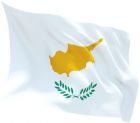 | All Cypriot students receive an annual educational grant (basic grant) by the Ministry of Finance. According to new
legislation which came into force in 2012, the educational grant is given based on family income criteria. The
minimum educational grant is EUR 850 and the maximum is EUR 2 565 per year.
Approximately 10 % of Cypriot students receive targeted need-based grants to cover living, books, rental and computer expenses based on their socioeconomic status. The minimum targeted grant is EUR 500 and the maximum is EUR 3 692 per year. About 2 % of students receive merit-based scholarships. The criteria for scholarships are academic excellence and socioeconomic status. Students may receive up to EUR 2 500-3 500 per year for an undergraduate programme (1st cycle), EUR 2 000 per year for a master's programme (2nd cycle). | Study loans are available only for owners of property in the northern Cyprus. |
Cyprus 2015/16 - grants and loans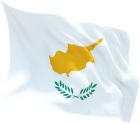 | A big number of Cypriot students, whether studying in Cyprus or abroad, receive an annual educational grant (basic grant) from the Ministry of Finance, based on family income criteria. The minimum educational grant is EUR 1 450 and the maximum is EUR 2 565 per year. The basic grant is the same for the first and second cycle. Approximately 10 % of Cypriot and other EU students, studying in Cyprus, receive targeted need-based grants to cover living, books, rental, and computer expenses based on their socioeconomic status. The minimum targeted grant is EUR 300 and the maximum is EUR 3 692 per year. The need-based grant is given to first-cycle students only. About 2 % of students receive merit and need-based scholarships. The criteria for scholarships are academic excellence and socioeconomic status. Students may receive up to EUR 2 500-3 500 per year for an undergraduate programme (1st cycle), EUR 2 500-4 000 per year for a master's programme (2nd cycle) and EUR 4 000-6 000 for a PhD programme (3rd cycle). | Study loans are available only for owners of property in the northern part of Cyprus. |
Cyprus 2016/17 - grants and loans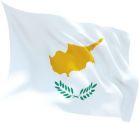 | A 'student grant' can be awarded to short cycle and 1st and 2nd cycle students to support their studies in Cyprus
or abroad. To be eligible students must have resided in Cyprus for at least five years before enrolment. The
amount of the grant is based on family income. The annual amount ranges from EUR 1 450 to EUR 3 420.
The 'student allowance' is a targeted need-based grant to cover living, books, rental, and computer expenses of 1st cycle students based on their socioeconomic status. The amount is EUR 3 692 per year. A new Student Welfare Service is established to manage the student grant and the student allowances. The State Scholarship Foundation awards scholarships based on students' academic performance and socio- economic status. Students studying in 1st cycle programmes may receive up to EUR 3 000 per year, in 2nd cycle programmes EUR 4 000 per year, and EUR 4 000 in a PhD programme (3rd cycle). | Study loans are available only for owners of property in the northern part of Cyprus. This is a state loan for 1st, 2nd and 3rd cycle students who study in Cyprus or abroad. The annual amount ranges from EUR 1 700 to 8 000 and should cover living expenses and tuition fees. Repayment in general starts one year after graduation and should be completed within 20 years. The interest rate of the loan is 1.75 %. Around 1.5 % of students take out the loan. |
Czech Republic 2013/14 - grants and loans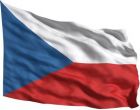 |
Scholarships can be granted on the basis of excellence in studies, for research, artistic or other activities. Scholarships are granted to students from regions other than the seat of the higher education institution as an accommodation scholarship (CZK 5 400/year). Social scholarships are available for students in a difficult economic situation (CZK 16 200/year). | No publicly subsidised loans are provided. |
Czech Republic 2015/16 - grants and loans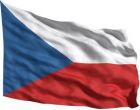 | Scholarships can be granted on the basis of excellence in studies, or for research, artistic and other activities. These scholarships are provided by all public higher education institutions. Scholarships are granted to students from regions other than the seat of the higher education institution as an accommodation scholarship (CZK 5 400/year). It is received by around 47 % of students. Social scholarships are available for students in a difficult economic situation. The amount received is the same for everyone (CZK 16 200/year), and 0.9 % of students receive this support. | No publicly subsidised loans are provided. |
Czech Republic 2016/17 - grants and loans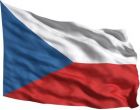 | Scholarships are granted by all public higher education institutions on the basis of excellence in studies, or for
research, artistic and other activities.
Scholarships are granted to students from regions other than the seat of the higher education institution (CZK 5 400/year). Around 47 % of students received this scholarship in 2015/16. Social scholarships are available for students in a difficult economic situation. The amount received is the same for everyone (CZK 24 750/year). 0.8 % of students received this support in 2015/16. | No publicly subsidised or market loans are provided for financing studies. |
Denmark 2013/14 - grants and loans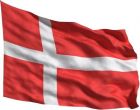 | State grants are available to all students. The maximum amount is DDK 5 753 per month for 12 months each year for students living independently. Extra grants are available for students who become parents and for single parents. Additional grants of DDK 8 180 per month are available for students with a disability. The amounts are for the year 2013. | State loans of DDK 2 943 per month are available to all students. During the period of study, a 4 % annual interest rate applies. Students must start paying back no later than one year after the end of the year in which they graduate. The loan must be repaid within 15 years. About half of all students make use of state loans (2).The amounts are for the year 2013. |
Denmark 2015/16 - grants and loans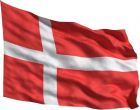 | State grants are available to all full-time Danish citizens in recognised educational programmes if they fulfil certain requirements. International students (EU and outside EU) must fulfil some special conditions to be placed on an equal footing with Danish citizens and receive state education support. The maximum amount is DKK 5 903 per month for 12 months each year for students living independently. Extra grants are available for students who become parents when they live with another recipient of education support (DKK 2 358) and for single parents (DKK 5 903). Additional grants of DKK 8 394 per month are available for students with a disability when the disabled is not able to work alongside the education. The amounts shown are for the year 2015. The fees are regulated yearly on a calendar basis so new fees will apply for 1 January 2016. All grants are taxable. | State loans of DKK 3 020 per month are available to all full-time students who are entitled to a state grant. Supplementary student loans for students who are parents: DKK 1 511 per month. 'End-loan' for students who have used all their state grants and who have no more than 12 or 24 months left of their educational programme: DKK 7 791 per month. During the period of study, a 4 % annual interest rate applies. Students must start paying back no later than one year after the end of the year in which they graduate. The loan must be repaid within 15 years. About half of all students make use of state loans. No family allowances and no tax benefits for parents. |
Denmark 2016/17 - grants and loans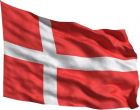 | State grants are available to all full-time Danish students who are active in recognised educational programmes,
and whose income does not exceed a defined amount (DKK 11 922 in 2016) in the month where the student
receives the grant. The minimum amount is DKK 922 per month for 12 months awarded to students who live with
their parents. The maximum amount is DKK 5 941 per month for 12 months each year for students living
independently. International students (EU and outside EU) must fulfil some special conditions to be placed on an
equal footing with Danish citizens and receive state education support.
Extra grants are available for students who become parents when they live with another recipient of education support (DKK 2 373) and for single parents (DKK 5 941). Additional grants of DKK 8 449 per month are available for students with a disability when the disabled is not able to work while studying. The amounts shown are for the year 2016. The fees are annually regulated, new amounts will apply for 1 January 2017. All grants are taxable, the payable amount depends on individual circumstances. | State loans of DKK 3 040 per month are available to all full-time students who are entitled to a state grant.
Supplementary student loans for students who are parents: DKK 1 521 per month. 'End-loan' for students who
have used all their state grants and who have no more than 12 or 24 months left of their educational programme:
DKK 7 842 per month. During the period of study, a 4 % annual interest rate applies. Students must start paying
back no later than one year after the end of the calendar year in which they graduate. The loan must be repaid
within 15 years. 38 % of students make use of state loans.
Part-time students are not eligible for state support. |
England 2013/14 - grants and loans |
1st cycle full-time – the support package includes a need-based grant for living costs. The maximum is GBP 3 354 (for students with a
household income of GBP 25 000 or less). In 2012/13, 40 % of applicants were awarded a full grant and 14 % were awarded a partial grant
(provisional). Students who are lone parents or who have certain disabilities may be eligible for a special support grant.
1st cycle part-time – grants and loans for living costs are not available. 1st cycle – all institutions charging more than GBP 6 000 must offer National Scholarship Programme (NSP) awards to students from disadvantaged backgrounds. Awards include bursaries, fee waivers and 'in-kind' support. Many institutions also offer other bursaries and scholarships aimed at students from under-represented groups. 2nd cycle – with the exception of a few specific disciplines, such as teaching, social work and some health professions, the majority of students following taught programmes are self-financing. There is some support for students on doctoral research programmes (which may incorporate masters level study). The Research Councils set a minimum level for this stipend which for 2013/14 is GBP 13 726 per year. 2nd cycle – around 60 % of students on taught programmes and 30 % of research students do not receive any support towards tuition fees or living costs. |
1st cycle full-time – the support package includes a loan for living costs for all students. The maximum for students living in the family home
is GBP 4 375. For students living away from the family home the maximum is GBP 5 500 outside London and GBP 7 675 in London. The
amount is reduced for students who receive a need based grant. Repayments as for tuition fee loans.
1st cycle part-time – grants and loans for living costs are not available.1st cycle – all institutions charging more than GBP 6 000 must offer National Scholarship Programme (NSP) awards to students from disadvantaged backgrounds. Awards include bursaries, fee waivers and 'in-kind' support. Many institutions also offer other bursaries and scholarships aimed at students from under-represented groups. 2nd cycle – with the exception of a few specific disciplines, such as teaching, social work and some health professions, the majority of students following taught programmes are self-financing. There is some support for students on doctoral research programmes (which may incorporate masters level study). The Research Councils set a minimum level for this stipend which for 2013/14 is GBP 13 726 per year. 2nd cycle – around 60 % of students on taught programmes and 30 % of research students do not receive any support towards tuition fees or living costs. |
England 2015/16 - grants and loans | 1st cycle full-time – the support package includes a need based grant for living costs. The grant is awarded on a sliding scale with a full grant of GBP 3 387 for students with a household income of GBP 25 000 or less and a partial grant for students with a household income of up to GBP 42 620. In 2013/14, 58 %of applicants eligible for support (grant and/or loan) were awarded a grant (43 % a full grant and 15 % a partial grant). Students who are lone parents or who have certain disabilities may be eligible for a special support grant. Many institutions also offer other bursaries and scholarships aimed at students from under-represented groups. | For 1st cycle full-time students, the support package includes a loan for living costs for all students. The maximum for students living in the family home is GBP 4 565. For students living away from the family home the maximum is GBP 5 740 outside London and GBP 8 009 in London. The amount is reduced for students who receive a need based grant. Repayments as for fee loans. 1st cycle part-time – grants and loans for living costs are not available. 2nd cycle postgraduate taught – there is no universal support package. However, in 2015/16 under the Postgraduate Support Scheme (PSS) the Higher Education Funding Council for England (HEFCE) is providing funding for 10 000 scholarships of GBP 10 000 for Masters Students. From 2016/17, PPS will introduce income-contingent loans for students under 30 years old wishing to undertake a postgraduate taught masters in any subject. |
England 2016/17 - grants and loans | - | 1st cycle and short-cycle full-time: 2016/17 entrants do not receive a need-based grant but may obtain a higher
level of loan for living costs. The maximum for students living in the family home is GBP 6 904. For students living
away from home the maximum is GBP 8 200 outside London and GBP 10 702 in London. The loan repayment is
income-contingent and set at 9 % of earnings above the threshold of GBP 21 000; interest rates are Retail Price
Index plus 3 %. Special support grants are available for students who have dependent children or who have
certain disabilities. Many institutions also offer other bursaries and scholarships aimed at students from under-
represented groups.
Continuing 1st cycle full-time students who entered prior to 2016/17 may still apply for a maintenance grant of up to GBP 3 387 plus a lower level of maintenance loan. The grant awarded depends on household income. In 2014/15, 57.5 % of applicants eligible for support (grant and/or loan) were awarded either a full (42.8%) or partial (14.7%) grant. 1st cycle part-time: students studying a course of at least 25 % intensity, or in short cycle programmes, can apply for a loan to cover the tuition fee, which may be repaid after graduation. Loans for living costs are not available. 2nd cycle postgraduate taught: from 2016/17, a loan of up to GBP 10 000 is available for postgraduate Masters study. The same amount is provided for one year or for longer master programmes. 2nd cycle postgraduate non- taught – individual institutions can provide a merit based grant, which tends to follow the minimum stipend recommended by Research Councils UK, GBP 14 296 for 2016/17. |
Estonia 2013/14 - grants and loans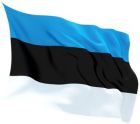 |
From 2013/14, a new study grant system is implemented. The new system is need-based. Grants vary from EUR 75 to 220 per month and depend mostly on students and/or his/her family income. Grants are available to approximately 17 % of all students in the 1st and 2nd cycle together. The basic grant is EUR 55.93/month and the additional grant EUR 28.13/month. These grants are currently primarily based on merit. Students can receive grants for 10 months per academic year. | Full-time students can apply for state guaranteed loans. Estonian citizens or persons with a permanent residence permit, with full-time studies, according to curricula, of nine months or more has the right to obtain a study loan. Some exemptions are envisaged by the law. The maximum amount is EUR 1 920/academic year. |
Estonia 2015/16 - grants and loans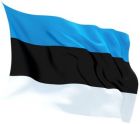 | From 2013/14, a new study grant system has been implemented. The new system includes need- and merit-based support. Need-based grants vary from EUR 75 to 220 per month for 10 months per year depending on students and family income. At least 25 % of students are thought to be eligible for this support, although 17 % of students received the grant in 2014/15. Since 2014, students may apply for a merit-based grant of EUR 100 per month based on excellent study results. This is available for 4 % of the student population enrolled since 2013/14. A new scholarship programme to support the development of smart specialisation areas has also been established. A merit-based grant of EUR 160 per month (1 600 per year) is available to approximately 50 % of full time students in defined areas. For computing and information technology curricula, the amount of the grant is EUR 160-300 per month (EUR 1 600-3 000 per year). From 2014/15, students with disabilities and students growing up in care institutions may apply for a higher education scholarship. In the case of disabled students, the scholarship ranges from EUR 60-510 per month. All students who enrolled in HEIs before 2013/14 academic year have the right to a merit-based grant up until 2015/16. From then on, the new system will be fully implemented. | Full-time students can apply for state guaranteed loans. Estonian citizens or persons with a permanent residence permit, studying full-time for nine months or more have the right to obtain a study loan. The maximum amount is EUR 1 920/academic year, and 8 % of students took such a loan in 2013/14. |
Estonia 2016/17 - grants and loans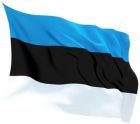 | In general, full-time students are eligible for support. The grant system includes need- and merit-based support.
Need-based grants vary from EUR 75 to 220 per month for 10 months per year depending on students and family
income. Approximately, 12 % of students receive a need-based. From 2014/15, full-time and part-time students
with disabilities and students growing up in care institutions may apply for a higher education scholarship. In the
case of disabled students, the scholarship ranges from EUR 60-510 per month.
Students may apply for a merit-based grant of EUR 100 per month based on excellent study results. This is available for 2 % of the student population. A further merit-based grant of EUR 160 per month (1 600 per year) is available to approximately 50 % of full-time students in smart specialisation areas. For computing and information technology curricula, the amount of the grant is EUR 160-300 per month (EUR 1 600-3 000 per year). Part-time students in teacher training programmes can also apply for a speciality grant. Approximately 5 % of all students receive the speciality grant. | Estonian citizens or persons with a permanent residence permit, studying full-time for nine months or more have the right to obtain a state-guaranteed study loan. The maximum amount is EUR 1 920/academic year, and 8 % of students took such a loan in 2015/16. The interest rate is 5 %. Repayment must start within a year after graduation (except if the student continues studies), and must be completed in double the nominal period of studies, if studies are finished without a qualification, repayment must be done in 1-1.5 the period of studies. |
Finland 2013/14 - grants and loans | Study grant (SG), for which a certain number of credits is required, is available for the regular length of study and
depends on age and whether the student lives with parent(s). Amounts range from EUR 55 to 298/month.
A housing supplement (HS) covers 80 % of the rent for students living independently. The maximum amount is EUR 201.60/month. SG and HS are available only if the student's income is below EUR 11 850/year. This is not an absolute maximum but refers to a typical situation where the student receives aid for nine months: For each month during which you receive study grant or housing supplement, the exempt amount is on average EUR 660, and for each aid-free month EUR 1 970. Assuming that you received aid for 9 months, you would be allowed to have up to EUR 11 850 a year in other income. The income may be earned at any time during the calendar year. SG and HS can be taken 12 months a year, but typically they are taken 9 months. Hence, a common amount is EUR 7 196 (of which EUR 2 700 is a student loan, which is used only by 40 % of students in higher education). | Study loans of EUR 300/month are government guaranteed. Higher education students admitted from August 2005 who graduate in the normative time are entitled to tax deduction for study loans. |
Finland 2015/16 - grants and loans | Study grants (SG), for which a certain number of credits are required, are universal for the regular length of study. Amounts range from EUR 55.96 to 336.76/month and depend on age and whether the student lives with parent(s) as well as on the date of starting the studies. A housing supplement (HS) covers 80 % of the rent for students living independently. The maximum amount is EUR 201.60/month. HS is an integrated part of the State’s student financial aid programme, and aims to better match support to real need (i.e. less support for those students who have lower housing costs). From the student perspective, the distinction between study grant and housing supplement is therefore largely theoretical. SG and HS are available for nine months only if the student's income is below EUR 11 850/year. This is not an absolute maximum but refers to a typical situation. For each month that the study grant or housing supplement is received, the exemption amount is on average EUR 660, and for each aid-free month EUR 1 970. Assuming that a student receives aid for 9 months, (s)he would be allowed to earn up to EUR 11 850 a year in other income. The income may be earned at any time during the calendar year. SG and HS can be taken for 12 months a year, but typically they are taken for 9 months. Hence, a common amount is EUR 8445.24 (of which EUR 3 600 is a student loan, which is used only by 40 % of students in higher education). The maximum is EUR 11 260.32. | Student loans of EUR 400/month are government guaranteed. Higher education students who graduate within the target time can be entitled to student loan tax deduction (for studies that started prior to 1.8.2014) or compensation (for studies that started on 1.8.2014 or after). |
Finland 2016/17 - grants and loans | Only full-time students are eligible for student support. The maximum annual aid is EUR 11 260.32. A common
amount is EUR 8445.24 (of which EUR 3 600 is a student loan).
Study grants (SG), which require the completion of an average 60 credits per year, are universal for a maximum of 64 months. Amounts depend on age and whether the student lives with parent(s). Typically, for students over 18 years living on their own the maximum is EUR 336.79. For students under 20 years living with their parents, the typical range is between EUR 62-163.80 per month. A housing supplement (HS) covers 80 % of the rent for students living independently, with a maximum of EUR 201.60/month. HS aims to match support to need (i.e. less support to students with lower housing costs). SG and HS are typically available for nine months only if the student's income, which may be earned at any time during the calendar year, is below EUR 11 850/year. | Student loans of EUR 400/month are government guaranteed. Students who graduate within the target time can be entitled to tax deduction (30 %, for studies that started prior to 1 August 2014) or compensation (40 %, for studies that started on 1 August 2014 or after). Repayment of student loan usually starts 1.5-2 years after graduation and has to be completed in usually double study time. Interest rates and conditions are agreed with the student and the bank. |
Former Yugoslav Republic of Macedonia 2016/17 - grants and loans | Merit-based grants are provided for students showing particular scientific or artistic inclinations and winning
awards at international and national competitions. Grants are awarded on the basis of the contest announced by
the Ministry of Education and Science, two-three months after the beginning of an academic year.
Need-based grants are awarded to students based on the monthly income of their family (60 % weight), academic performance (20 % weight), if they are the child of a single parent (10 % weight), and if studying at a technical, engineering or medical university (10 % weight). Students who have not passed at least 80 % of the prescribed exams for their study programme are automatically disqualified. The average grant amount is around MKD 3 000 per month, for nine monthly instalments. The maximum grant is about MKD 5 500 per month. Grants can be awarded to all students in first cycle studies in public and private higher education institutions in the country. There is no scholarship for students in the first academic year. Approximately 20-25 % of all students receive grants (need-based and merit-based grants). Support is not available for students in short cycle programmes. | There is no student loan, nor tax release or family allowance. |
France 2013/14 - grants and loans |
Grants are awarded on the basis of financial need to students that are less than 28 years of age. The amount awarded for the need-based grant depends on the assessment of social criteria. Students are classified into categories based on the family income; within the framework of a reform of the grants (2013), a new category has been created for lower middle-class students, and a new one for the most deprived students. All grant holders get tuition for free and social security contribution waivers (EUR 211). In 2013/14 the amount of the annual grant varies from EUR 0 (for lower middle-class students who only get the waivers) to EUR 5 500. In addition, students having a need-based grant can get a complementary merit-based grant (based on school performance from the baccalauréat results) which amounts to EUR 1 800. | Loans are also available. In 2008, the Ministry of Higher Education and Research started a new policy to get loans easier for all students aged less than 28. It provides loans with a maximum amount of EUR 15 000, guaranteed by a special fund 'OSEO'. Less than 0.1 % of university students take out such a loan. |
France 2015/16 - grants and loans | Grants are awarded on the basis of financial need to students less than 28 years of age. The annual amount awarded for need-based grants depends on an assessment of social criteria, with students classified into categories based on family income. Within the framework of a reform of grants (2014) a new category of grant amounting to EUR 1 007 has been introduced for the most deprived (based on family income) lower middle-class students who previously benefited only from a fee waiver. As of 2014, students who receive a need-based grant can also get a complementary merit-based grant (based on school performance from the baccalauréat results) which amounts to EUR 900. All grant holders receive free tuition and a waiver from social security contributions (EUR 215). In 2014/15, the amount of the annual grant ranges from EUR 0 (for lower middle-class students who only receive a fee waiver) to EUR 5 545. | Loans are also available. In 2008, the Ministry of Higher Education and Research started a new policy to make loans easier for all students aged under 28. It provides loans up to a maximum of EUR 15 000, guaranteed by a special fund 'OSEO'. Less than 0.1 % of university students take out such a loan. |
France 2016/17 - grants and loans | Grants are awarded on the basis of financial need to students (short, first and second cycle) less than 28 years of
age. The annual amount awarded for need-based grants depends on an assessment of social criteria, with
students classified into nine categories based on family income. All grant holders receive free tuition and a waiver
from social security contributions (EUR 215). In 2016/17, the amount of the annual grant ranges from EUR 0 (for
lower middle-class students who only receive a fee waiver and a waiver from social security contributions) to
EUR 5 551. An additional grant amounting to annual EUR 1 009 is available for the most deprived (based on family
income) lower middle-class students.
Students who receive a need-based grant can also get a complementary merit-based grant (based on school performance from the baccalauréat results) which amounts to EUR 900 per semester. | State guaranteed loans up to an annual maximum of EUR 15 000 are also available for all EU/EEA students aged under 28. Loans are guaranteed by a special fund 'OSEO'. Less than 0.1 % of university students take out such a loan. Interest rates are defined by banks. Repayment must start 2 years after graduation, but early redemption of interests is possible. |
Germany 2013/14 - grants and loans |
General public student support (BAföG) is awarded as a grant for one half of the individual amount, and as an interest free loan for the other half. Total amounts range from EUR 10 to EUR 670/month for 12 months/year. Eligibility and amount are determined by assessment of student need based on income, family situation, housing situation and disability. A maximum of EUR 10 000 needs to be paid back. Students need to be under the age of 30 (35 for master studies) to be eligible for public student support. Different types of merit-based support are awarded entirely as a grant. The amount awarded is often determined through an evaluation of student need. Total amounts of scholarships range from EUR 150 to EUR 820/month for 12 months/year. Additional support is determined by assessment of the family financial situation. | Study loans are available to cover the tuition fees (in those Länder that charge tuition fees and limited to the amount charged) and living costs. The latter are available as a Bildungskredit of up to EUR 7 200 and a Studienkredit of up to EUR 54 600. Both loans are paid out in monthly instalments. |
Germany 2015/16 - grants and loans | General public student support (BAföG) is awarded as a grant for one half of the individual amount, and as an interest free loan for the other half. Total amounts range from EUR 10 to EUR 670/month for 12 months/year. Eligibility and amount are determined by assessment of student need based on income, family situation, housing situation and disability. A maximum of EUR 10 000 needs to be paid back. The average amount paid for 2014 was EUR 5 376 per year (EUR 448 per month). Students need to be under the age of 30 (35 for master studies) to be eligible for public student support. | An education loan (Bildungskredit) covers living costs which are not covered by BAföG. It is available of up to EUR 7 200. Also there is a Study loan (KfW-Studienkredit) of up to EUR 54 600. Both loans are paid out in monthly instalments. |
Germany 2016/17 - grants and loans | General public student support (BAföG) is awarded as a grant for one half of the individual amount, and as an interest free loan for the other half. Total amounts range from EUR 10 to EUR 735/month for 12 months/year. It is available for full- time 1st and 2nd cycle and comparable studies (e.g. state exam studies in law, medicine). Eligibility and amount are determined by assessment of student need based on income, family situation, housing situation and disability. A maximum of EUR 10 000 needs to be paid back. The average amount paid for 2015 was EUR 5 376 per year (EUR 448 per month). Students need to be under the age of 30 (35 for master studies) to be eligible. | An education loan (Bildungskredit) covers living costs which are not covered by BAföG. The maximum amount that can be taken out is EUR 7 200. Repayment of EUR 120 per month must start four years after the start of the loan. The Federal Government guarantees the repayment credit and the interest. A study loan with favourable terms (KfW-Studienkredit) of up to EUR 54 600 is also available. Both loans are paid out in monthly instalments. |
Greece 2016/17 - grants and loans | There are no standard scholarships. Depending on funds available from the state budget, ESIF or private funds
managed by IKY (State Scholarship Foundation), a call for applications for grants is published. Awards and
scholarships may be offered by higher education institutions, according to students' academic performance and
financial status. Part-time students are not eligible for IKY grants.
Grant/scholarships are also offered by research institutions/non-profit/benefit foundations to first, second cycle and PhD students. Eligibility/selection criteria are age, grades (for 2nd cycle), foreign languages, work experience and socio-economic status. The scholarships awarded by the Hellenic Open University cover the full amount or part of the student fees per academic year if a combination of economic, social and academic criteria is met by the student. | 2nd students may apply for state guaranteed loans until the age of 45 and if they meet academic and socio- economic criteria. Parents' guarantee for redeeming the loan to credit institutions is requested. Interest rate may be covered by the Ministry of Education, Research and Religious Affairs up to 50 % (Government Gazette 659/31-07- 1996). The terms of loan are further determined by the credit institutions. There are no statistical data on the number of students who receive loans. The legal basis for a loan for 1st cycle studies is available, but the conditions have yet to be developed. |
Hungary 2013/14 - grants and loans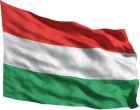 |
The regular need-based grant is paid for a period of 10 months/year. The minimum of the grant specified by the law for the disadvantaged, for students with one living parent and those under legal guardianship until the age of 18 is HUF 119 000/academic year. The minimum of the grant specified by the law for the disabled, multiple disadvantaged, orphans, students supporting dependents or those from a large family is HUF 238 000/academic year. In addition to the regular (monthly) need-based grant (shown in the diagram above), there is a scholarship scheme jointly financed by municipalities and higher education institutions (Bursa Hungarica scholarship). One-off initial and emergency grants are also available. Only state-funded students can receive a merit-based grant. In order to receive a merit-based grant, students have to obtain a certain number of credits or a minimum mark stipulated by the HEI. The grants are paid for a period of 10 months/year. A maximum of 50 % of students at state-funded places are awarded a merit-based grant. The minimum of the grant specified in the law is HUF 59 500/academic year. The diagram does not contain data on the 'Scholarship of the Hungarian Republic', which is granted only to the best performing students (maximum 0.8 % of state-funded students) and is a significantly higher amount. |
A government-subsidised loan (Student Loan 1) is available for both state-funded and fee-paying students (max. HUF 50 000/month for a period of 10 months/year). Orphans and those with unemployed parents can receive HUF 10 000/month more. The maximum duration is 5 years (7 for longer diploma courses such as medicine). Students below 35 years of age are eligible. It is a general-purpose loan. A second type of student loan (Student Loan 2) has been available for fee-paying students since the academic year 2012/13. It is a government subsidised loan with interest rates lower than for Student Loan 1 (above). It can only be spent on tuition fees and it can cover the whole of the tuition fee. Fee paying students can take out both types of loans to cover both study costs and living costs. |
Hungary 2015/16 - grants and loans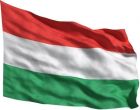 | The regular need-based grant is paid for a period of 10 months/year. The minimum of the grant specified by the law for the disadvantaged, for students with one living parent and those under legal guardianship until the age of 18 is HUF 119 000/academic year. The minimum of the grant specified by the law for the disabled, multiple disadvantaged, orphans, students supporting dependents or those from a large family is HUF 238 000/academic year. In addition to the regular need-based grant (shown in the diagram above), there is a scholarship scheme jointly financed by municipalities and higher education institutions (Bursa Hungarica scholarship). One-off initial and emergency grants are also available. Only state-funded students can receive a merit-based grant. In order to receive a merit-based grant, students have to obtain a certain number of credits or a minimum mark stipulated by the HEI. The grants are paid for a period of 10 months/year. A maximum of 50 % of students at state-funded places are awarded a merit-based grant, and the minimum amount of the grant is HUF 59 500/academic year. There is also a 'Scholarship of the Hungarian Republic', which is granted only to the best performing full time students (maximum 0.8 % of statefunded students). It is granted for 10 months, and the amount of the scholarship is 34 000 HUF/month (in total 340 000HUF/year). | A government-subsidised loan (Student Loan 1) is available for both state-funded and fee-paying students (max. HUF 50 000/month for a period of 10 months/year). Orphans and those with unemployed parents can receive HUF 10 000/month more. The maximum duration is 5 years (7 for longer diploma courses such as medicine). Students below 40 years of age are eligible. It is a general-purpose loan. A second type of student loan (Student Loan 2) has been available for fee-paying students since the academic year 2012/13. It is a government subsidised loan with interest rates lower than for Student Loan 1 (above). It can only be spent on tuition fees and can cover the whole of the tuition fee. Fee paying students can take out both types of loans to cover both study costs and living costs. |
Hungary 2016/17 - grants and loans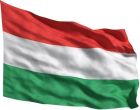 | Need-based grants are paid for 10 months/year. Only full-time state-funded students are eligible. For students with
one living parent and those under legal guardianship until the age of 18, the grant is for HUF 119 000/academic
year. For multiple disadvantaged students, orphans, students supporting dependents or those from a large family, it
is HUF 238 000/academic year. Disadvantaged students can also apply for the Bursa Hungarica scholarship jointly
financed by municipalities and higher education institutions with an average value of HUF 25 427. Both fee paying
and state subsidised students are eligible. In the autumn semester of the 2015/16 academic year, 6.4 % of all 1st
and 2nd cycle students received this scholarship. One-off initial and emergency grants are also available.
Merit-based grants are available to full-time state-funded students, and a maximum of 50 % can receive this support. The minimum amount is HUF 59 500/academic year. Another merit based 'Scholarship of the Hungarian Republic' is granted to a maximum 0.8 % of state-funded students with a value of HUF 340 000/academic year. | Two government-subsidised loans are available. The first, with a maximum duration of five years (longer for subjects such as medicine), is for both state-funded and fee-paying students, and has a maximum amount of HUF 50 000/month (HUF 60 000 for certain categories of disadvantaged student) for a period of 10 months/year. 9 % of students took this loan in 2015/16. The second loan (Loan 2) can only be spent on fees. 18 % of eligible students took this loan in 2015/16. Fee-paying students can take out both loans simultaneously. Loan repayment must start four months after the end of student status, and by the age of 40, with repayment linked to personal income. |
Iceland 2013/14 - grants and loans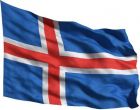 | In principle, no public grants/scholarships are available. However, some merit-based grants are provided by universities and by the Icelandic Research Fund for Graduate Students for the 2nd cycle students. | Loans are provided to full-time students by the Icelandic Student Loan Fund. The amount depends on the size of student's family and personal circumstances including income. The basic individual support for academic year 2012/13 was ISK 140 600/month. Around 50 % of students take out a student loan. |
Iceland 2015/16 - grants and loans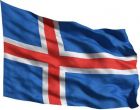 | In principle no public grants/scholarships are available. However, some merit-based grants are provided by universities and by the Icelandic Research Fund for Graduate Students for the 2nd cycle students. | Loans are provided to full-time students by the Icelandic Student Loan Fund. The amount depends on the size of student's family and personal circumstances including income. The basic individual support for academic year 2014/15 is ISK 165 717/month. Around 50 % of students take out a student loan. |